Nymphomaniac: Interview with actors Stellan Skarsgård and Stacy Martin
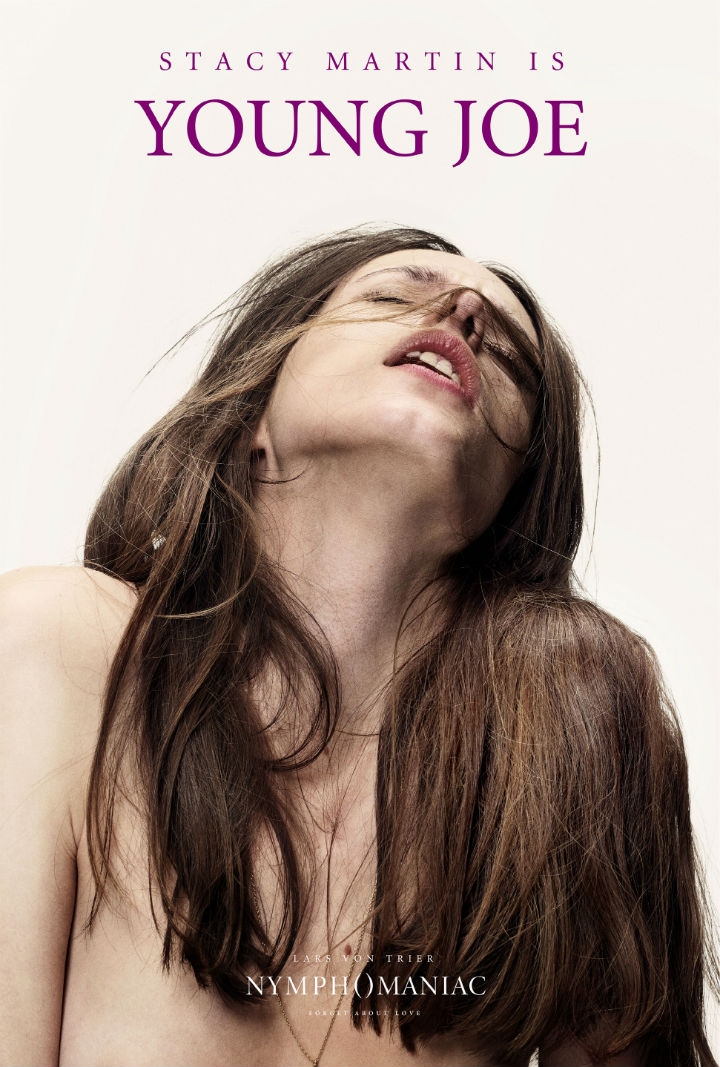
Swedish acting veteran Stellan Skarsgård, and the up-and-coming actress Stacy Martin, both of whom star in Lars von Trier’s Nymphomaniac Volumes 1 and 2, discuss the new film and what it was like working with one of the most controversial directors in cinema:
You have worked with Lars on various films over the years, how has his directing style changed?
Stellan Skarsgård: Our first film was Breaking the Waves, and since then we have become friends – I love the man! You could say that Breaking the Waves, as a feature film, was his first attempt of giving up some of the control he had on his first films. He realised that his first five films were actually pretty dead, because they were overly controlled by him; he designed every movement of the actors, and no life came out of that. So when we started working on Breaking the Waves there were signs on the wall saying “make mistakes”; we could do whatever we wanted in front of the camera, so this brought life to it. He still had ideas of directing the actors, or helping the actors get to a certain state, that he has given up more and more. He is more relaxed toward human beings now then he was back then, and it is extremely comfortable working with him because his trust is total – you cannot make enough mistakes, which is wonderful for actors, and you have a lot of fun.
How would you describe the character Seligman? Was it a hard role to play?
When you talk about a Lars von Trier film you always have to realise we are not talking realism, it’s a fairytale, and the character is very much an idea, the idea of a man who has no experience of life whatsoever. He knows a lot but all he knows is from books, which is a fun idea, but it doesn’t create a human being. So the human being you have to invent to give life to that idea.
When you are talking about the character Seligman, everything Joe says is completely new to him; the only way he can associate is through his knowledge from books. That’s why when she talks about fucking a man on a train he goes “oh that is exactly like fly-fishing.” He’s trying to use his tools, and you think that gradually throughout the film he actually understands more and more, and he does, but obviously as you understand at the end he doesn’t understand enough, unfortunately.
You are stuck in a room the whole time, how was that? How did you build a rapport with Charlotte Gainsbourg?
It had the theatre aspect of a lot of words, but the way we acted was not in a theatre way because we are not acting lines we are acting the situation. But it was extremely intimate and lovely! I know the crew, they are all friends, and everybody is very un-hierarchical, and very nice, and Lars is there, who is one of my best friends, and wonderful Charlotte! So it was so intimate, and it was one of the best times in my life those two weeks in that room, in terms of creativity.
Is the setting supposed to resemble any particular place?
I think Lars wrote it to be set in England, but he doesn’t really care since he creates his own universe anyway. I think I pay with a pound note in the shop at the beginning. I don’t think he has been in England that much because he doesn’t travel a lot, but he had an idea that this is in England. There is something very retro about it… I don’t know what it is, maybe this is the side of nostalgia in him, but he is not very ambitious in recreating reality, more in creating his own universe. He doesn’t give a fuck about the accent…
So the accents are allowed to just reign free to create that kind of world then?
He doesn’t care because in his universe anyone can talk whatever way they want, and anyway today the world is such a mix. But he is not reliant on the realistic possibility of anything, the characters are not even plausible, they are just ideas, but ideas that are brought to life.
In what way do you think the film tackles morality and psychology, and more specifically the topic of sexual desire?
Lars puts lot of questions out there but he doesn’t give you any answers, does he? You could say that the two leading characters, mine and Charlotte’s, are the sides of himself. One side is the nerd, fascinated by Fibonacci numbers and Bach, things that Lars is interested in. The other side is the wilder more vulnerable person that is struggling with life and society, that is also Lars. If there are any moral questions put out there when it comes to sexuality, his morals are, which I share, that as long as both parties, or all three or all five, enjoy it then it is fine. Sexuality is to him and to me, of course, a big deal in our lives, but it is not something you put any rules on. There are other moral discussions, that partly come out of his confrontation in Cannes, about a society or a world where the words you use…you can be hung or burnt on a stake for using certain words, and nobody cares about the intention behind them or what it really means. After Cannes, according to Lars, he was placed as the number three anti-semite in the world on the Simon Wiesenthal website…and he’s not! He hasn’t even contributed to anti-semitism in the world, not as much as Binyamin Netanyahu has (laughs).
So you think he attempts to release the politically correct restrictions placed on words?
For instance, like calling a black man a negro; when Martin Luther King was talking about civil rights, he used that word. So you should get suspicious when society relabels something because today you’re not allowed to say “negro” and then they changed it to “coloured”, and now you’re not allowed to say that, and then even “black” became weird and now it’s “African-American”. But still they have twice the infant mortality rate as a white man, so you relabel but you do not change the problem.
Obviously the film’s core focus is on female sexual desire but how do you think the film depicts male sexual desire, and along with that what is your take on the ending?
Yeah, the ending is tragic in a way, because it shows a man that didn’t quite understand and did not learn enough in four hours of film. It also shows our desperation because I don’t believe in capital punishment for anything. The film is totally concerned with her sexuality and doesn’t give a fuck about male sexuality. Lars said to me this is the best male role I’ve ever written, and I said to him yeah that doesn’t say much… Because he writes fantastic roles for women and he explores mankind through women, and the men are extras, or bimbos (laughs)…which is interesting and I understand it because there are a lot of things that are easier to express through a female character, in terms of vulnerability, that are very hard to do through a male character because we are more square.
It must have been a big surprise getting the part, could you give some insight into the time from auditions to filming?
Stacy Martin: I met the casting director who told me about the film, and who said that I should audition, and I kind of thought “that’s a bit weird” – why, if he doesn’t know me, would I suddenly come and audition for a Lars von Trier movie? He was telling the truth, and I auditioned twice in London and then went to Copenhagen to screen test , met Lars and did the scenes and flew back, and all along that process in my mind I thought, “this is never going to happen.” I hadn’t even finished my training, I didn’t even have an agent at the time or any experience, and when you look at Lars’ catalogue he works with the most incredible actors. I thought, “he’s going to cast another amazing person as he normally does, so that is fine with me because I love his films and I get to have a masterclass with him”, and it was just that. There was no way he was going to take on a completely unknown and inexperienced actress, and then he did! So that was a surprise.
What was it like working with Lars? How would you describe him?
He is very enigmatic, so kind, and he is constantly talking about things – I think it comes through in the film, all these references to fly-fishing or the paintings… I felt very protected, although people had said he was going to manipulate me, and no actually he was just very aware that this was my first film and he wanted to be sure that I could do it. He sat me down before we started the first day, and said: “Look, I really want us to make a deal together, that you tell me if there is anything that makes you feel uncomfortable, because you carry a lot of weight in this film and if you are uncomfortable it will show on camera. There is no way I want to make this film with you being uncomfortable. It has to be a “we are in it together” situation.” As soon as we had that conversation, I was like of course I’m going to tell you, I’m just that kind of person anyway, so even to be allowed to do that is great.
Was it an enjoyable film to make?
Yeah! I mean, crazy to film – it’s such a crazy script with all the sex and stuff. But it was really fun because we were there for two and a half months, and he works with a lot of the same people so you are part of a family, and they are all there for Lars and they believe in his work. So there’s a sort of community, which is incredible, and it made it really fun.
As you were young Joe and Charlotte Gainsbourg played the older Joe, how much did you work in correspondence with each other?
Not at all. We could have, definitely, it would have made complete sense. We met before we started filming, while we were doing all the fittings and then that was it. I think that when I saw the script and with Charlotte playing the older Joe, it probably painted how I perceived Joe immediately, but we didn’t consciously sit down and say “I think she’s like this…”
Who was the biggest influence on you during filming?
Just Lars. The fact that he knows exactly what he wants for a scene, but he gives you complete freedom, and it’s so clever because he knows that when he casts the actors he will get to what he is looking for. So he doesn’t try and put a stamp on them, you find yourself going to where he wants you to go, and I found that absolutely incredible to work in that way and have that freedom. He would come to me and say “change the words, I don’t like that line.” Complete freedom, but also very structured.
What way do you think sex is depicted in the film?
Very technical, very matter-of-fact, and very cold. But sex is matter-of-fact, we all reproduce, it is showing sex for what it is sometimes, rather than putting this whole romantic weight on it.
How were the sex scenes shot?
It was very mechanical. We talked about them for quite a while – we need prosthetics, we need porn doubles for this scene – so everything was set. Then they would decide on a position, and discuss whether the porn doubles would do it first or we do it first, just for special effects reasons, and then marks were put on my body to match the pictures. It was ridiculous! Lars is very free and very naturalistic, and suddenly you are confined! It was so unerotic and so unnatural.
Do you think the film champions womanhood and female sexuality?
Definitely. It challenges people to think about it, and to think about it in different ways. People might think “oh this is really degrading” but I think it is empowering, because it shows women in situations that are difficult, but they always stay true to themselves and power through it. It is not misogynistic, Lars sees women as stronger than men.
Thoralf Karlsen
Nymphomaniac Volume 1 is released in selected cinemas on 28th February 2014.
Read our review of Nymphomaniac Volumes 1 and 2 here.

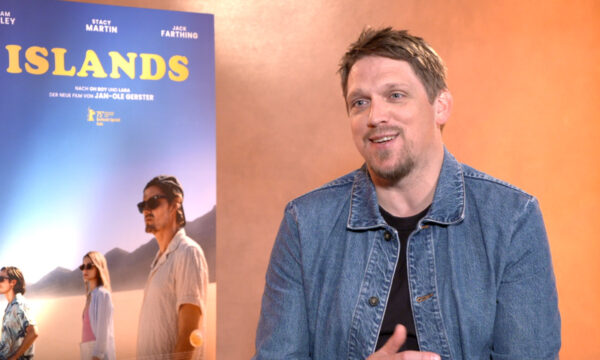
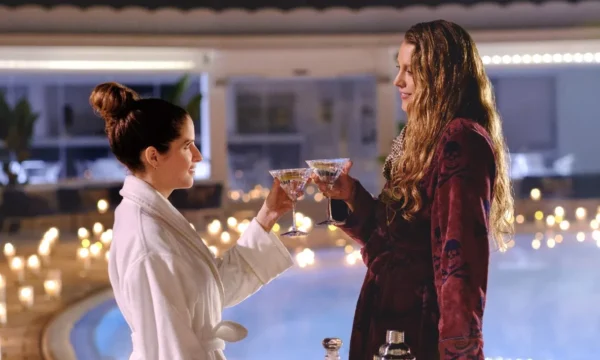
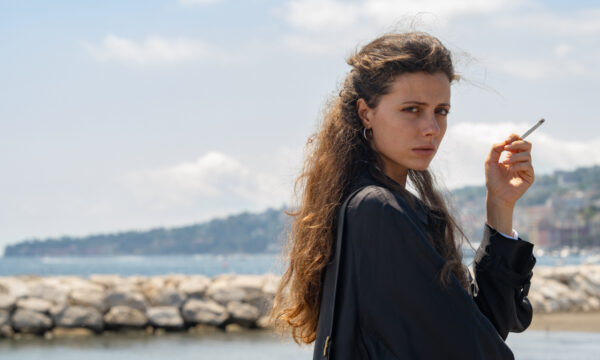
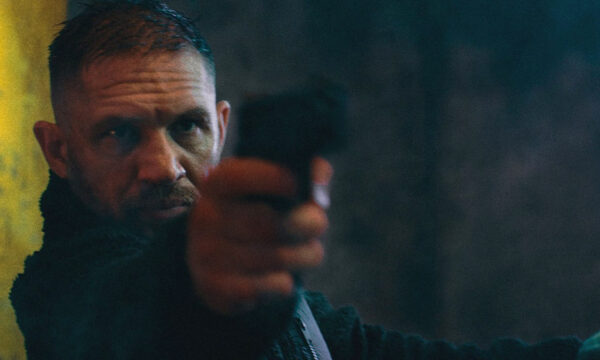












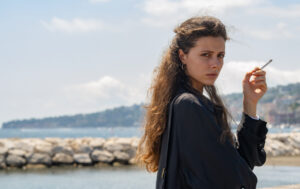
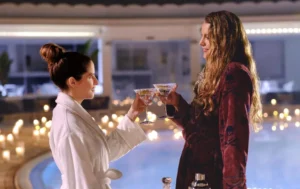





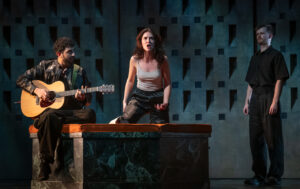
Facebook
Twitter
Instagram
YouTube
RSS